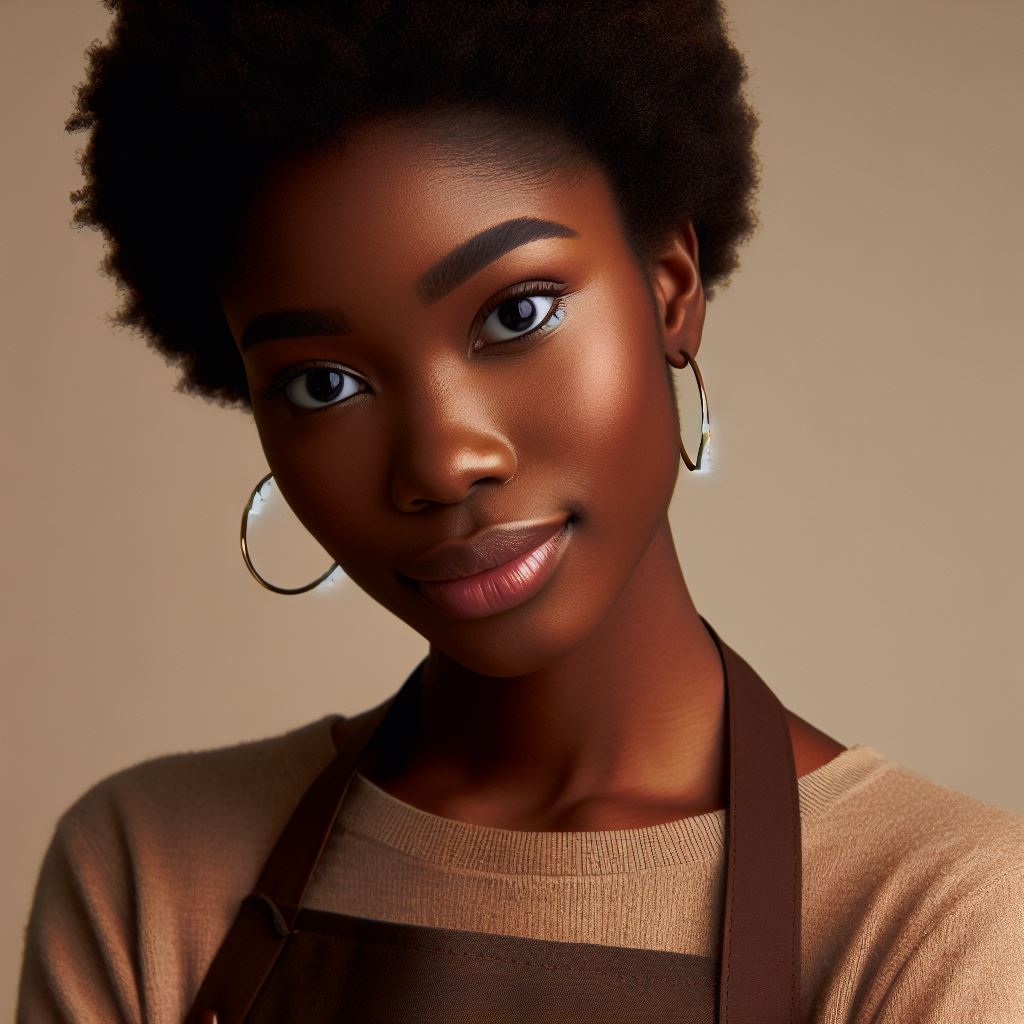Introduction
Cosmetology and beauty therapy are often used interchangeably, but they represent distinct fields.
Cosmetology encompasses a broader spectrum, including skincare, haircare, and nail care.
In contrast, beauty therapy focuses primarily on skincare treatments and holistic approaches to beauty.
It’s crucial to grasp these disparities, as they delineate the scope of practice and expertise in each field.
Cosmetologists are trained in various disciplines, allowing them to offer comprehensive services like hair styling, manicures, and facials.
On the other hand, beauty therapists specialize in facial treatments, body massages, and skincare regimens.
Understanding the differences between cosmetology and beauty therapy is vital for both professionals and clients.
For professionals, it ensures they adhere to their area of expertise and provide specialized services effectively.
Clients benefit from knowing what to expect from each discipline, enabling them to make informed decisions about their beauty and skincare needs.
Moreover, recognizing these distinctions promotes professionalism within the beauty industry.
It encourages practitioners to pursue specialized training and certifications in their chosen field, enhancing their skills and credibility.
This, in turn, elevates the quality of services offered and fosters trust between practitioners and clients.
In a world where beauty standards continue to evolve, understanding the nuances between cosmetology and beauty therapy becomes even more pertinent.
It allows individuals to tailor their beauty routines and treatments according to their specific goals and preferences.
Whether seeking a comprehensive makeover or targeted skincare solutions, knowing the difference ensures optimal results and satisfaction.
In summary, while cosmetology and beauty therapy share common goals of enhancing beauty and well-being, they differ in scope and focus.
Recognizing these disparities is essential for professionals to deliver specialized services and for clients to make informed choices.
By understanding these distinctions, we uphold standards of excellence and empower individuals to embrace their unique beauty journeys.
Educational Requirements
The educational paths for cosmetology and beauty therapy
Cosmetology typically involves a comprehensive program covering various aspects of beauty and aesthetics.
This includes hair styling, skincare, makeup application, and nail care.
Programs often include both theoretical and practical training, preparing students for licensure and careers in the beauty industry.
On the other hand, beauty therapy programs tend to focus more on skincare and body treatments, with an emphasis on therapeutic practices and holistic approaches to beauty and wellness.
Students learn about skin analysis, facial treatments, massage techniques, and other spa services.
Training and certification requirements for each discipline
Cosmetologists must complete a state-approved cosmetology program, which typically consists of around 1,500 hours of training.
After completing their training, they must pass a state licensing exam to practice legally.
Beauty therapists, on the other hand, may pursue certification through accredited beauty therapy programs, which vary in length but generally require fewer hours of training compared to cosmetology programs.
Certification requirements also vary by state or country.
Length and intensity of education for cosmetology and beauty therapy programs
Cosmetology programs usually require a longer time commitment due to the breadth of topics covered, ranging from hair care to nail art.
The intensity of training prepares cosmetologists for a wide range of services and techniques.
Beauty therapy programs, while still rigorous, may have a shorter duration as they focus more narrowly on skincare and body treatments.
However, these programs may delve deeper into the therapeutic aspects of beauty, requiring students to master massage techniques and spa practices.
In essence, while both cosmetology and beauty therapy programs provide comprehensive training in beauty services, they differ in their emphasis and depth of study.
Cosmetology encompasses a broader range of services, while beauty therapy focuses more on holistic approaches to skincare and wellness.
Read: Top Cosmetology Schools in Nigeria: A Complete Guide
Focus Areas
When it comes to cosmetology, there are several specific focus areas that professionals can specialize in.
These areas encompass a wide range of beauty-related services, each requiring a different set of skills and techniques.
Specific focus areas within cosmetology
Hair Styling
One of the primary focus areas within cosmetology is hair styling.
Cosmetologists who specialize in hair styling are trained to cut, color, and style hair in a variety of ways.
They are experts in creating the perfect haircut to suit their client’s face shape and personal style.
From trendy cuts to classic styles, hair stylists use their creativity and technical skills to transform their clients’ hair.
Transform Your Career with Expert Guidance
Get personalized mentorship consulting that’s tailored to your unique path. Our expert advice is actionable and exclusive.
Get StartedThey also provide services such as hair coloring, highlights, and treatments to improve the health and appearance of the hair.
Makeup Artistry
Another popular focus area within cosmetology is makeup artistry.
Makeup artists are skilled in using cosmetics to enhance their clients’ natural beauty and create stunning looks for various occasions.
Whether it’s a glamorous evening look, a natural daytime look, or special effects makeup for film and television, makeup artists are trained to create flawless makeup applications.
They understand color theory, skin tones, and facial features to achieve the desired look for their clients.
Skincare
Skincare is another important focus area within cosmetology.
Skincare specialists are trained to assess their clients’ skin type and condition and provide treatments to address specific concerns.
Services offered by skincare professionals include facials, peels, and other treatments designed to improve the health and appearance of the skin.
They also educate clients on proper skincare routines and recommend products to maintain healthy skin.
Services provided by cosmetologists in salons and spas
Cosmetologists provide a wide range of services in salons and spas, catering to clients who want to enhance their beauty and improve their overall appearance.
These professionals use their skills and expertise to transform their clients’ hair, makeup, and skin, leaving them feeling confident and beautiful.
Some of the services provided by cosmetologists include:
- Haircuts and styling
- Hair coloring and highlights
- Makeup applications
- Skincare treatments
- Facials and peels
- Manicures and pedicures
These services can range from simple touch-ups to full makeovers, depending on the client’s preferences and needs.
Cosmetologists work closely with their clients to understand their desires and create a customized beauty regimen that suits their unique style.
Different techniques and treatments used in cosmetology
Cosmetology encompasses a wide range of techniques and treatments that are used to enhance beauty and improve the overall appearance of the hair, makeup, and skin.
These techniques require specialized skills and training to ensure that clients receive high-quality services that meet their specific needs.
Some of the different techniques and treatments used in cosmetology include:
- Hair cutting and styling techniques
- Color theory and hair coloring techniques
- Makeup application techniques
- Skincare assessment and treatment techniques
- Nail care and manicure/pedicure techniques
By mastering these techniques, cosmetologists are able to provide their clients with personalized beauty services that enhance their natural features and boost their confidence.
Whether it’s a new haircut, a flawless makeup look, or a rejuvenating skincare treatment, cosmetologists have the skills and expertise to help their clients look and feel their best.
Read: Networking Strategies for Communication Arts Students

Professional Opportunities
When it comes to the field of cosmetology, there is a wide range of career options available for individuals who have completed their training and obtained the necessary licenses.
Cosmetologists can choose to work in various settings such as salons, spas, or even start their own businesses.
Career options available to cosmetologists
- Working in Salons: One of the most common career paths for cosmetologists is working in salons.
This allows professionals to provide a wide range of services to clients such as hair styling, nail care, and makeup application. - Freelancing: Some cosmetologists choose to work as freelancers, providing their services to clients on a more flexible schedule.
This can involve doing bridal makeup, providing beauty services for special events, or even working with celebrities. - Starting a Business: For those with an entrepreneurial spirit, starting a business in the field of cosmetology can be a rewarding venture.
This could involve opening a salon, spa, or even creating a line of beauty products.
As the beauty industry continues to grow, there is significant potential for growth and advancement in the field of cosmetology.
With the rise of social media and beauty influencers, there is a growing demand for talented cosmetologists who can create unique and trendsetting looks.
Potential for Growth
Cosmetologists who continuously update their skills and stay on top of industry trends have the opportunity to advance their careers and take on leadership roles within their organizations.
They can also explore opportunities to work in high-end salons, fashion shows, or even become beauty educators.
Success Stories
There are plenty of successful cosmetologists in the industry who have made a name for themselves through their talent and hard work.
These professionals have built a strong reputation and have a loyal clientele who trust them for their expertise and creativity.
One such example is Mario Dedivanovic, a celebrity makeup artist known for his work with Kim Kardashian.
He has garnered a massive following on social media and has collaborated with major beauty brands.
Another success story in the cosmetology field is Jen Atkin, a hairstylist who has worked with stars like Jennifer Lopez and Chrissy Teigen.
She has her own line of haircare products and is a sought-after professional in the beauty industry.
These success stories inspire aspiring cosmetologists to pursue their passion and showcase the endless opportunities available in this dynamic and rewarding field.
Read: Study Tips for Communication Arts Students
Role of Beauty Therapy
Beauty therapy is a specialized field within the beauty industry that focuses on enhancing a person’s physical appearance and overall well-being.
Unlike cosmetology, which primarily deals with hair, nails, and makeup, beauty therapy takes a holistic approach to beauty and wellness.
Beauty therapy and its purpose in the beauty industry
Beauty therapy involves providing a range of beauty treatments and services to clients to improve their physical appearance.
The main purpose of beauty therapy is to enhance a person’s self-esteem and confidence by addressing their individual beauty needs.
Services provided by beauty therapists
Beauty therapists offer a wide range of services, including facials, massages, body treatments, and skincare treatments.
They also provide services such as waxing, manicures, pedicures, and makeup application. These treatments are tailored to meet the specific needs of each client.
The holistic approach to beauty and wellness in beauty therapy
Beauty therapy takes a holistic approach to beauty and wellness by considering the individual as a whole.
This means addressing not only the physical appearance of a person but also their emotional well-being and mental health.
Beauty therapists aim to promote overall wellness by providing treatments that nourish both the body and the mind.
In general, beauty therapy plays a crucial role in the beauty industry by offering a variety of treatments and services aimed at enhancing a person’s physical appearance and overall well-being.
By taking a holistic approach to beauty and wellness, beauty therapists help clients look and feel their best from the inside out.
Read: Communication Arts: Challenges and Solutions
Differences in Training and Skills
Skills and techniques required for cosmetology and beauty therapy
Cosmetologists wield an arsenal of skills tailored to hair mastery: cutting, coloring, and styling techniques that transform locks into works of art.
Conversely, beauty therapists refine their craft in the realm of skincare, delving into the intricacies of facials, makeup application, and skincare regimens.
In the bustling world of beauty, both disciplines demand a nuanced understanding of product chemistry and its effects on diverse skin and hair types.
Yet, while cosmetologists sculpt with shears and dyes, beauty therapists wield a different set of tools—ones that rejuvenate and replenish the skin, leaving clients glowing with renewed vitality.
Emphasis on practical experience and client interaction in beauty therapy
In the realm of beauty therapy, theory only takes one so far.
Here, the cornerstone of training lies in hands-on practice, where therapists refine their skills through real-world scenarios.
From the delicate art of facial massage to the precise application of makeup, each interaction serves as a canvas for learning and growth.
Moreover, client interaction isn’t merely a byproduct of the job—it’s at the heart of beauty therapy.
Therapists hone their communication skills, listening attentively to clients’ concerns and desires, building trust through empathy and understanding.
Through this intimate exchange, therapists not only provide physical rejuvenation but also offer solace and reassurance.
Differences in client relationships and treatment methods between cosmetologists and beauty therapists
While both cosmetologists and beauty therapists share the common goal of enhancing clients’ aesthetic appeal, their approaches diverge in both methodology and intent.
Cosmetologists cultivate enduring relationships through routine services, becoming trusted confidants as they tend to clients’ hair needs.
In contrast, beauty therapists delve deeper, focusing on holistic well-being rather than mere physical appearance.
Their treatments extend beyond the surface, addressing underlying skincare concerns and fostering a sense of inner radiance.
By tailoring treatments to individual needs, beauty therapists forge connections that transcend the superficial, nurturing both body and soul.
Conclusion
Cosmetology focuses on hair, skin, and nails, while beauty therapy delves into holistic skincare.
Choosing between them depends on your passion and career aspirations. It’s crucial to align your choice with your interests and goals.
Explore the diverse opportunities within both industries to find your niche and excel.
Whether it’s mastering the art of hairstyling, skincare, or nail art, both cosmetology and beauty therapy offer rewarding paths for those passionate about enhancing beauty and wellness.
So, take the time to research, shadow professionals, and consider your strengths and preferences.
By making an informed decision, you pave the way for a fulfilling career journey in either cosmetology or beauty therapy.




